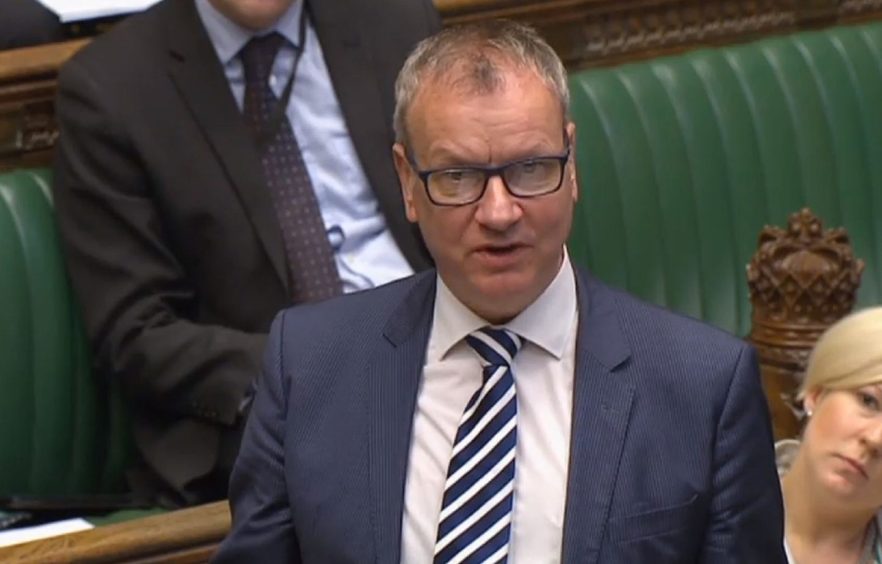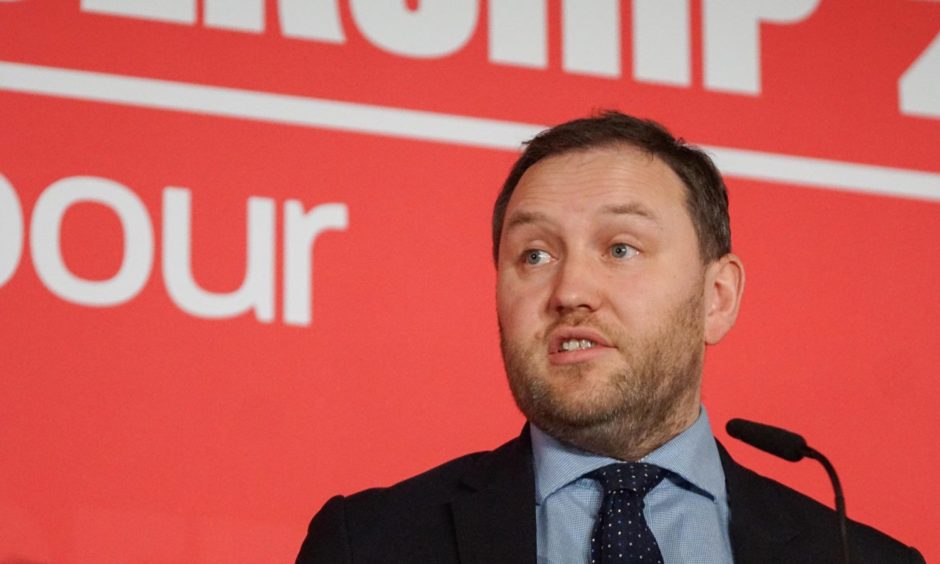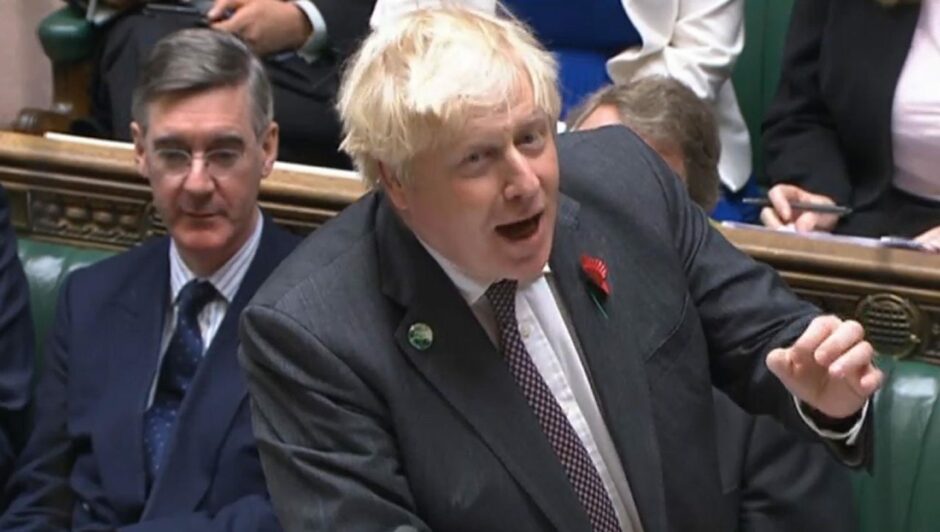Scottish Conservative leader Douglas Ross has been slammed for abandoning his MPs after they were ordered by Boris Johnson to back an overhaul of disciplinary processes to save a Tory at the centre of a lobbying scandal.
Mr Ross did not vote on a crucial amendment that saw his party colleagues block the suspension of MP Owen Paterson – who was found to to have committed an “egregious” breach of lobbying rules.
The Moray MP did not speak up before the controversial Commons vote.
But afterwards said he “personally couldn’t support changing the rules while an independent process is under way”.
He allowed four of his six party colleagues to vote with the government after it reportedly imposed a strict instruction to follow orders, known as a three-line whip.
The unusual decision to impose such a strong line on Westminster business means any MP voting against the government would normally expect serious consequences.
To run away from this, to simply abdicate your responsibility, will not find favour with constituents.
– Pete Wishart MP
Only Scottish Secretary Alister Jack joined Mr Ross in failing to support the government.
A spokeswoman said Mr Jack had to leave straight after Scottish Questions to get the train to Glasgow for “long-standing COP26 commitments”.
The government was accused of sending Britain back to the “dark days of Tory sleaze” by corralling MPs to block the suspension of Mr Paterson.
The punishment would normally trigger a recall petition and potentially lead to a by-election.
What had Owen Paterson done?
MPs voted on Wednesday on whether to approve a six-week ban on Mr Paterson, MP for North Shropshire.
The Commons Standards Committee had found he repeatedly lobbied ministers and officials for two companies paying him more than £100,000 a year.
In what has been described as an “unprecedented” move, the government effectively overruled the Committee by introducing the three-line whip in support of Dame Andrea Leadsom’s amendment calling for a review of the case.
The Scottish Conservatives refused to say before the vote whether their MPs would back the amendment.
Mr Ross did not respond to a request for comment, despite having hours to express his concerns.
West Aberdeenshire and Kincardine MP Andrew Bowie joined former Scottish Secretary David Mundell, former Scotland Office minister and north-east MP David Duguid and Borders MP John Lamont in voting for the Leadsom amendment.
An awful day for democracy
There were shouts of “shame” and “what have you done to this place” from opposition MPs as the House voted 250 to 232, majority 18, to approve the amendment. The division list showed 13 Tories voted against it.
SNP MP Pete Wishart, who led for his party during the debate, said that for Mr Ross to abstain while his colleagues voted in favour “sends all the wrong signals” on an “awful day for our democracy”.
He said: “It would be interesting to know why the Scottish Conservative leader seems to get special dispensation. This isn’t the first time this has happened.
“He seems to get special treatment to vote as he pleases but the other Conservative members are expected to support the government.
“We deserve an explanation as to what’s going and how their whipping arrangements actually work. The Scottish Conservatives seem to be all over the place.”
Mr Wishart said it is “utterly unprecedented” to see the full force of a Tory whip backed by the prime minister for standard House business such as voting through a suspension.
He added: “This was an important moment. Everyone will be looking to their MPs to see how they voted. To run away from this, to simply abdicate your responsibility, will not find favour with constituents.”
A sham process
As well as reviewing Mr Paterson’s case, the amendment calls for a Conservative-majority committee led by former culture secretary John Whittingdale to examine the standards system.
Labour leader Sir Keir Starmer confirmed Labour will boycott the commission, insisting his party “won’t have anything to do with this complete and utter sham process”.
Shadow Scottish Secretary Ian Murray said Mr Ross “sat on his hands” rather than stand with the public “and vote against clear bids to buy access to government”.
“What the Tories fail to understand is you can’t stand up for the Union when you want to undermine it to help line your chum’s pockets,” he said.
“This is about them trying to change the rules after they’ve been caught breaking them. Because under the Tories it is one rule for them, and another for the rest of us.”
Boris Johnson, who voted for the amendment, said paid lobbying in the Commons “is wrong” and those “who are found guilty of that should apologise and pay the necessary penalties”.
He then added: “But that is not the issue in this case or this vote that is before us.”
Mr Johnson said: “The issue in this case, which involved a serious family tragedy, is whether a member of this House had a fair opportunity to make representations in this case and whether, as a matter of natural justice, our procedures in this House allow for proper appeal.”
Downing Street had earlier urged MPs to seek “cross-party agreement on a new appeals process”, arguing the right of appeal is “sacrosanct in providing fairness and natural justice”.
The prime minister’s press secretary insisted “this isn’t about one individual case and we’re not having a view on the ruling or looking to overturn the ruling” – despite the amendment specifically naming Mr Paterson.




